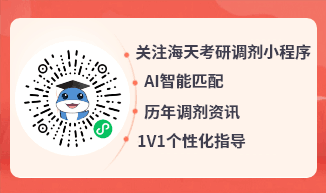考研英语冲刺:历年真题来源报刊阅读19
Athens: Then & Now
Imagine you are a citizen of Athens, enjoying a warm Mediterranean night in the Theater of Herodes Atticus. You are wearing jeans and a T-shirt, listening to a great concert.
Now rewind this picture 1,839 years. You are in the same seat, only you are watching classical Greek entertainment and wearing a simple chiton, or tunic.
The city of Athens is a fun mix of the old and the new, the classic and the modern. Often a little shop is located next to the ruins of a temple, which is only a block from a large, airconditioned hotel. The great city of 2,500 years ago is still visible today.
Ruins are the most obvious sign of ancient Athens, and the most famous of these is the Acropolis. The Acropolis is a large hill that was the center of life in Athens. On its Mopes were temples, monuments, and theaters. From the top, Athens’ urban sprawl stretches out in every direction.
On the top of the Acropolis is the Parthenon. This was once a huge temple to Athena, the city’s patron. It was first completed in 432 B.C., but has been damaged and destroyed several times. However, visitors can still admire the “tricks” used in building the Parthenon. The columns along the outside lean inward, and are slightly fatter in the middle. The temple is also higher in the middle than on the sides. All these effects make the Parthenon look perfectly straight from a distance.
Only a block away from the Acropolis is the neighborhood of Plaka. The area, with its little shops and restaurants, is very popular with both tourists and locals, and is an important part of modern Athenian culture.
Many great thinkers, writers, and political leaders lived in ancient Athens. The ruins of their homes and favorite spots are scattered throughout the busy port city. The hill where St. Paul addressed early Christian Athenians is located near the Acropolis. Great thinkers such as Perikles and Demosthenes spoke to the civil assemblies held at the Pnyx Hill. Today the Pnyx is an openair theater for light and sound shows.
Greeks still use some ancient sites, such as the Pnyx and the Theater of Herodes Atticus. During Roman times, in 76A.D., gladiators used the Panathenaic Stadium for contests.The Olympics were held there in 1896, and today people still jog and exercise in the stadium.
Tourism is very important to people who live in modern-day Athens. Thousands of people come every year to see these ruins and to tour the many museums that house artifacts from ancient times. This provides many jobs and brings money into Athens, which helps the city pay for improvements. Athenians take pride in the accomplishments of their ancestors, and people from all around the world come to admire them. By looking around the city today, we can imagine what life was like in ancient Athens.
考研词汇:
rewind[ri:'waind]
vt.重绕 n. 重绕
obvious[??bvi?s]
a.明显的,显着的
[真题例句] That experiences influence (v.) subsequent behaviour is evidence of an obvious but nevertheless remarkable activity called remembering.[1995年阅读5]
[例句精译] 过去的经历会影响日后的行为,这就表明存在着一种明显但却非凡的脑力活动——记忆。
sprawl[spr?:l]
n.四肢伸开的躺卧姿势, 蔓生v.四肢伸开地坐(或卧), 爬行, 蔓生, 蔓延
lean[li:n]
v.①倾斜,屈身;②倚,靠,依赖;a.精干的;瘦削的
[真题例句] Friedman relies on a lean (a.) staff of 20 in Austin.[2003年阅读1]
[例句精译] 弗莱德曼在奥斯汀市只有20人的精干职员队伍。
assembly [??sembli]
n.①集合,集会,会议;②装配
[真题例句] Our factories hum to the rhythm of robot assembly (②) arms.[2002年阅读2]
[例句精译] 我们的工厂里轰鸣着机械化生产线的节奏。
contest[k?n?test, ?k?ntest]
n.竞争,竞赛,比赛;
v.竞争,比赛,争论
[真题例句] In 1995 the CIA held a contest (n.) to see who could compile the most data about Burundi.[2003年阅读1]
[例句精译] 1995年中央情报局举办了一个竞赛,看谁能够收集到关于“布隆迪”的最多信息。
[真题例句] Clearly, only the biggest and most flexible television companies are going to be able to compete in such a rich and hotly-contested (v.) market.[2005年翻译]
[例句精译] 显然,只有大型化的,应变能力强的电视传媒集团才能够在这个精彩纷呈而又竞争激烈的市场中生存。
背景常识介绍:
雅典卫城位于耸立在雅典城市之上的一座岩丘上。公元前480年雅典遭波斯人攻击,当时雅典的许多建筑被毁坏。在这之后,雅典人在卫城上建造了一批宏伟的新神庙。巴台农神庙可能是古希腊神庙中最为精美、最为着名的一座。它于公元前447年-公元前432年间建造,全部采用白色大理石,外围都是色彩鲜明的浮雕,装饰着神庙的三角墙。
参考译文:
雅典:过去与现在
想象一下,你是一个雅典公民,上穿T恤衫,下穿牛仔裤,在温暖的地中海夜幕下,坐在希罗德·阿提库剧院欣赏着美妙的音乐会。
现在回溯到1839年。你坐在同一座位上,你所看的是经典的希腊娱乐节目,穿着简单的宽大长袍或是过膝短袖束腰外衣。
雅典城是新与旧、古典与现代的有趣组合。那里你在神庙的废墟旁可以发现小商店,而与神庙一个街区之隔就是有空调设施的大酒店。今天,你仍然可以看到2500年前的伟大古城。
古迹是古代雅典城最明显的标志,其中最着名的是雅典卫城。卫城坐落在山上,而这座山曾经是雅典的生活中心。山坡上有一些神庙、纪念碑和剧院。雅典城区从山顶向四面八方延伸。
坐落在山上最高点的帕提侬神庙,曾经是供奉城市的保护神——雅典娜的巨大神庙。它建于公元前432年,后来多次遭到毁坏。今天参观者仍然能够欣赏到她精湛的建筑技巧。神庙外围的石柱并非直立而是向里倾斜的,石柱中间略粗。神庙中心建筑比四周的高。这些建筑效果使帕提侬神庙从远处看起来十分高耸笔直。
距离雅典卫城仅一个街区就是普拉卡区,该区遍布小商店和餐馆,很受游客和当地人的欢迎,也是现代雅典文化的重要组成部分。
许多伟大的思想家、文学家和政治领导人曾在古代希腊生活。这些名人的住所遗址和活动场所遍布整个繁忙的港口城市。圣保罗曾在雅典卫城附近的山上为早期希腊基督教徒布道。伟大的思想家帕里克里斯和狄摩西尼曾在普尼克斯山向集会市民演讲。今天普尼克斯是娱乐秀和音乐会的露天剧场。
希腊人仍在使用一些古代的场所,如普尼克斯和希罗德·阿提库剧场。公元76年古罗马时期,角斗士曾在“泛雅典”露天运动场进行竞技比赛;1896年的奥林匹克运动会也在那儿举行;今天,人们仍在这个运动场跑步和锻炼。
旅游业对于居住在雅典的人来说是非常重要的。每年成千上万的各地游人来到希腊参观这些古迹和藏有古代工艺品的博物馆。旅游业提供了许多工作机会,为希腊带来了经济收入,促进了城市的发展。希腊人民为他们祖先的辉煌成绩感到自豪,世界各地的人民也来到希腊表达崇拜之心。今天,环游雅典全城,我们可以想象到古雅典人们生活的情景。
2024考研人数已公布,达438w,考研热度依旧火热!如何备战2025考研?哪个考研专业适合自己?在职考生如何备考?考研知识点繁多,择校困难大,和海天考研咨询老师聊一聊。网课面授多项选,专业辅导1对1,全年集训随时学!









